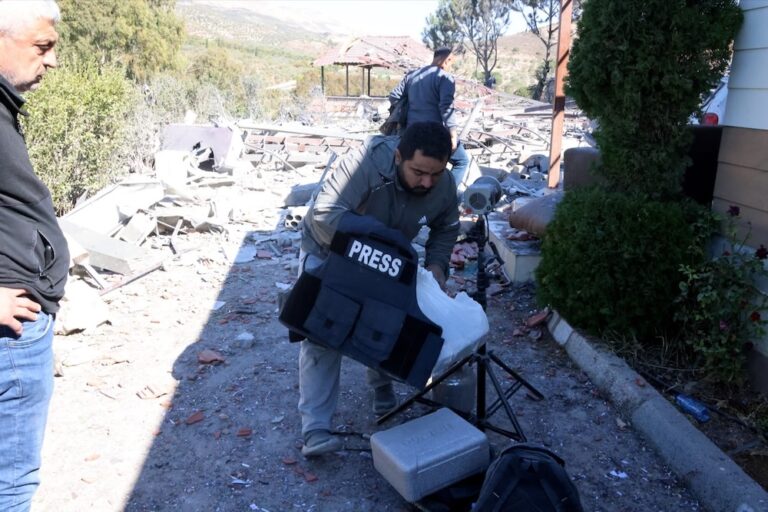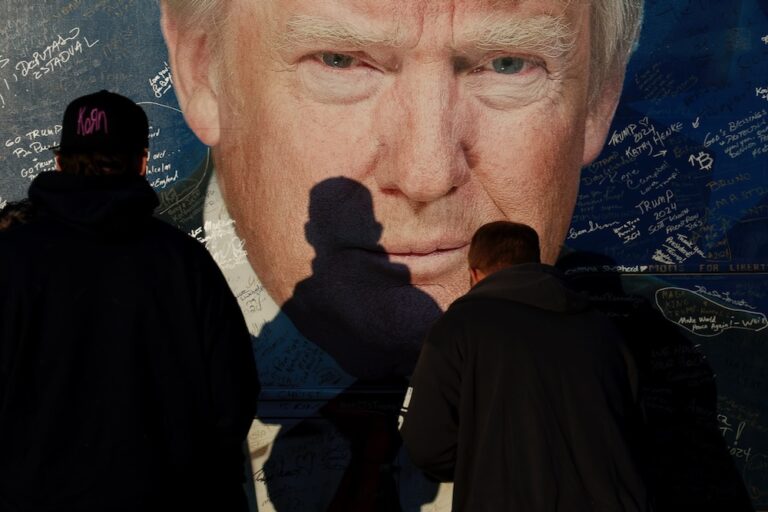(IFLA/FAIFE/IFEX) – The following is an IFLA/FAIFE media release: June 2003 Libraries are for democracy, not surveillance “In order to win the war against terrorism, we need to reinforce the democratic ideal,” said the Chair of the IFLA/FAIFE Committee, Mr. Alex Byrne. The International Federation of Library Associations and Institutions (IFLA) expresses its strong concern […]
(IFLA/FAIFE/IFEX) – The following is an IFLA/FAIFE media release:
June 2003
Libraries are for democracy, not surveillance
“In order to win the war against terrorism, we need to reinforce the democratic ideal,” said the Chair of the IFLA/FAIFE Committee, Mr. Alex Byrne.
The International Federation of Library Associations and Institutions (IFLA) expresses its strong concern at the use of libraries for surveillance in the United States of America, as reported by the Justice Department.
On May 20, 2003, Mr. Viet Dinh, an assistant United States Attorney General, testified before Congress, reporting on the Department of Justice’s use of its new powers under the USA PATRIOT Act. Asked about the use of the USA PATRIOT Act powers in libraries, he told Congress that any information on library contacts in the course of national security investigations would be provided to Congress in a classified format.
Details of the contacts with libraries are difficult to obtain because of the secrecy provisions in the USA PATRIOT Act, which makes it an offence for the librarian to disclose any information concerning a contact or visit. However, the results of an independent study sponsored by the Library Research Center at the University of Illinois Graduate School of Library Science indicate that over 10% of the large public libraries responding to the study have been approached by the FBI or other law enforcement authorities since the attack on the World Trade Center on September 11, 2001.
Whatever the number, this surveillance activity is of the greatest concern to IFLA because it undermines the purpose of libraries. Libraries are democratic institutions that offer unrestricted access to information to all. They provide a safe, supported and rich environment for people to pursue their interests including study, work, hobbies and general inquiry. These activities are essential to a free society because they enable all people to enlighten themselves and to act as informed citizens in the democratic process.
The threat of covert monitoring is intimidating to library clients and can inhibit library use, especially among those who have suffered under authoritarian regimes. IFLA is disappointed that its concerns about the USA PATRIOT Act and the 2002 guidelines issued by the Attorney General have been justified. IFLA supports initiatives taken by the American library community to protect the privacy of their clients.
IFLA calls on the United States Government and the Congress to respect the role of libraries as democratic institutions and to amend the USA PATRIOT Act to safeguard civil liberties and freedom of access to information. The Chair of the IFLA/FAIFE Committee, Mr. Alex Byrne, said:
“In order to win the war against terrorism, we need to reinforce the democratic ideal. All democracies must demonstrate their tolerance of diversity and value for the individual. We must reject the mechanisms of the police state. Our strength lies in our openness and is demonstrated through our free and independent libraries.”
LINKS:
The Free Expression Policy Project
http://www.fepproject.org/commentaries/patriotact.html
Terrorism, the Internet and Free Access to Information
04 October 2001
http://www.ifla.org/V/press/terrorism.htm
IFLA Committee on Free Access to Information and Freedom of Expression (FAIFE)
http://www.ifla.org/faife/index.htm


